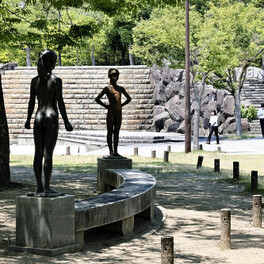A sweeping controversy is causing a stir in Japan over the display of statues depicting nude women in public spaces. Considering social, cultural and legal restrictions, many are voicing the need for removal of these art pieces. While some argue that they represent valuable cultural artifacts and artistic expression, others deem them inappropriate, leading to heated debate. The climax of this antagonism is yet to be seen as both sides stand firm on their beliefs.
In Japan, nudity within public art and spaces is often considered taboo due to customary norms and values. For instance, respect for others and awareness of the public sphere play a pivotal role in Japanese etiquette. Thus, sculptures depicting nudity can be seen as disruptive to Japan's highly refined aesthetic sensibility, causing controversy within society.
In contrast, in the US and EU, public nudity sculptures often generate less controversy. Many western societies have a long history of nudity in art, considered as a valued form of artistic expression and a symbol of freedom. Despite this, similar debates can occur around the appropriateness of nudity in public displays, reflecting the universal nature of this cultural clash.

